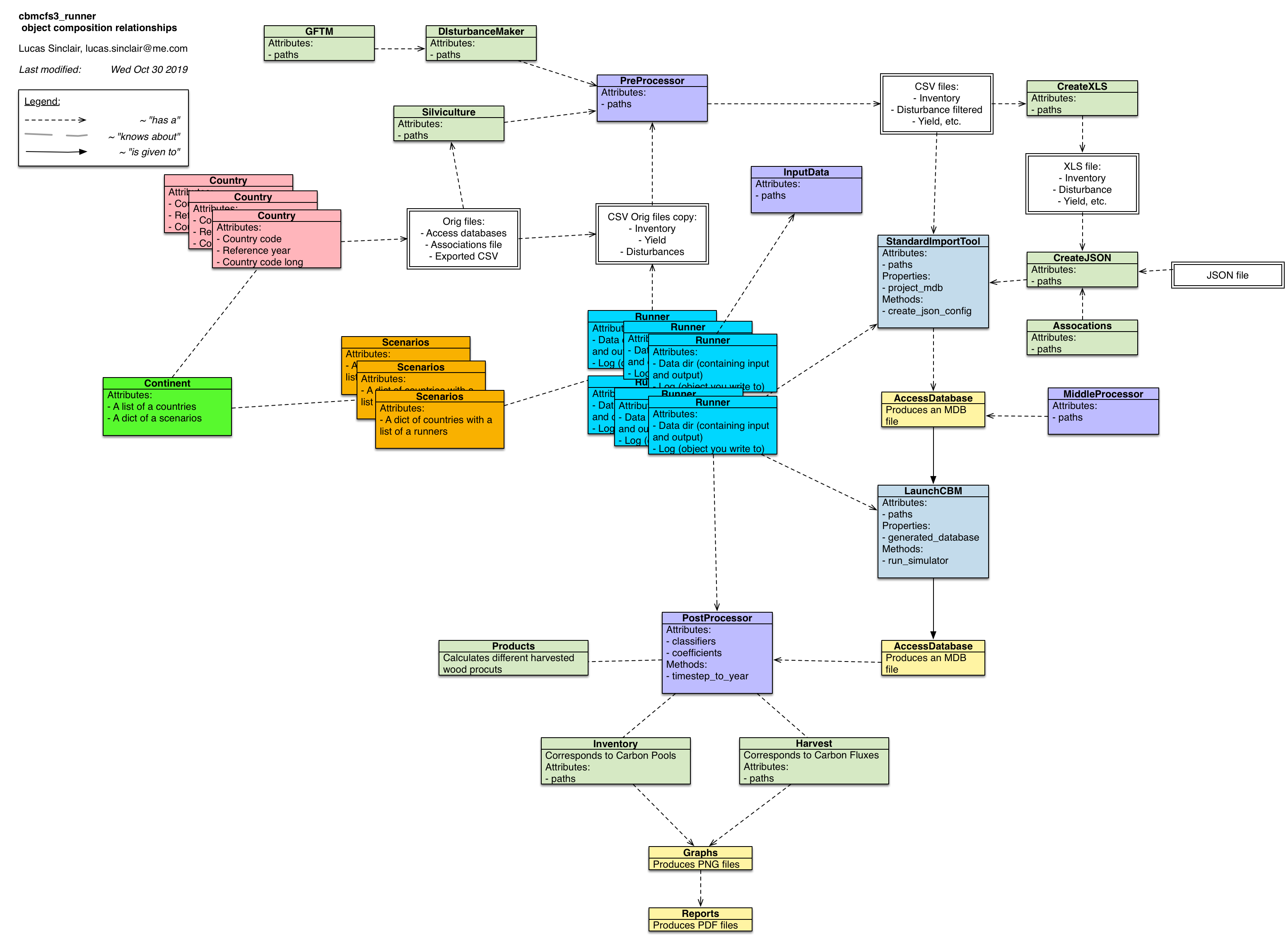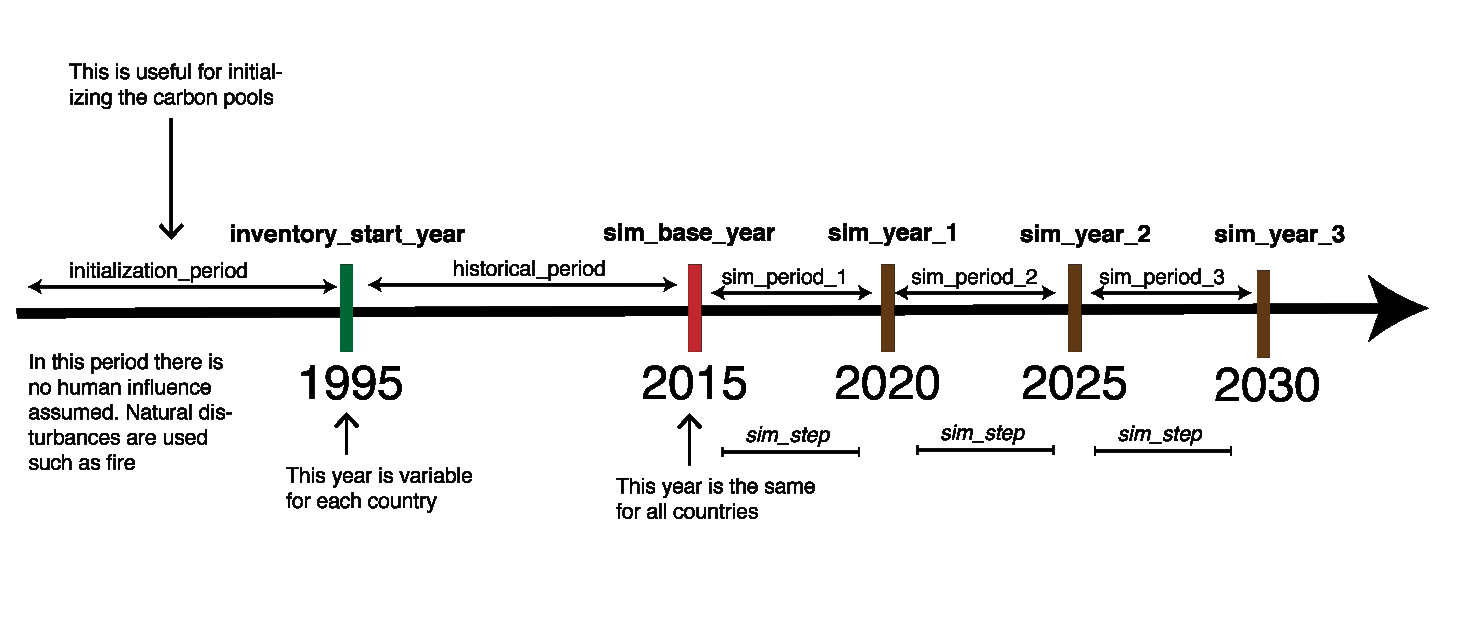[[TOC]]
cbmcfs3_runner is a python package for dealing with the automation and running of a complex series of models involving the European economy, the forest sector, carbon budgets and their interactions. Notably in relation to the CBM-CFS3 model developed by Canada.
The development version is hosted on git lab: https://gitlab.com/bioeconomy/cbmcfs3/cbmcfs3_runner
This package is currently under heavy development, and the master branch is subject to breaking changes at any moment. If you are interested in using this package in your own installation, please contact the authors.
No automated installation has been developed for the cbmcfs3_runner package yet. In the meantime, following this document and typing these commands on your command-line interface should get you started. If you cannot get a functional installation set up, contact the authors.
Here you will download a copy of the code from GitHub and place it in your file system.
$ cd /
$ mkdir repos
$ cd repos
$ git clone [email protected]:xapple/cbmcfs3_runner.git
Here you will edit your .bashrc or .bash_profile to add a reference to the python package you just downloaded. If you are on Windows, you can change your environment variables with the setx command.
$ vim ~/.bash_profile
export PYTHONPATH="/repos/cbmcfs3_runner/":$PYTHONPATH
When you type import cbmcfs3_runner python will know where to look.
cbmcfs3_runner uses many third party python libraries. You can get them by running these commands:
$ pip install --user autopaths
$ pip install --user plumbing
$ pip install --user pymarktex
$ pip install --user pbs3
Here you will download a copy of the dataset that describes the forest inventory of 26 EU member states along with their historical harvesting.
$ cd /repos/
$ git clone [email protected]:xapple/cbmcfs3_data.git
NB: Currently the access to that repository is restricted. Please contact the authors.
Setting up the rest of the OS environment and installing the other required executables is covered in the bioeconomy_notes repository.
NB: Currently the access to that repository is restricted. Please contact the authors.
To start an interactive session with the model on the command line, run:
$ ipython3
At the ipython prompt, to import the continent object that gives access to simulations pertaining to the 26 countries, run:
>>> from cbmcfs3_runner.core.continent import continent
For instance, you can now create a runner for the 'growth_only' scenario, the 'AT' country and the simulation period zero:
>>> runner = continent[('growth_only', 'AT', 0)]
Finally, to run that step of the model:
>>> runner.run(verbose=True)
The inventory start year and simulation base year are visible by creating a runner object for a given scenario (here called "static_demand") and by calling the following methods:
from cbmcfs3_runner.core.continent import continent
runner = continent[('static_demand', 'AT', 0)]
runner.country.inventory_start_year
runner.country.base_year
Reference years are defined in the set_years method of the country. The simulation base year is the same for all countries, hard coded to 2015, the inventory start year differs.
Below is drawn the flowchart describing the data processing along all the steps of cbmcfs3_runner:
Below is presented a tentative UML-style diagram detailing not the inheritance of the classes but the use of the composition design pattern between the objects created:
The simulation is broken down into several periods which are represented below.


